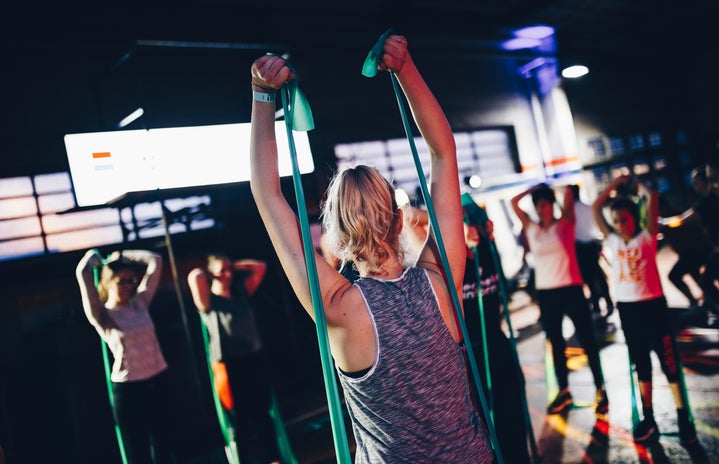Adding exercise to your life comes with a myriad of benefits. In particular, exercise has been shown to increase self-confidence, which we could all use more of! Additionally, you will probably sleep better if you start working out consistently. If that isn’t enough for you, then you should know that exercise can help you create new brain cells and sharpen your memory. Working out even increases productivity and creativity. All of this means that you should invest in yourself by creating a workout routine that you can actually stick to.
The US Department of Health and Human Services prescribes that adults get “at least 150 minutes of moderate-intensity physical activity” per week. Additionally, they recommend that adults “perform muscle-strengthening exercises on 2 or more days” per week. While at first glance this may seem intimidating, it doesn’t have to be. The 150 minutes can be divided throughout your week in many ways. For example, if you did 25 minutes 6 days a week you’d easily reach this goal. Moderate-intensity doesn’t mean that you have to be at the gym either. A brisk walk can be used as well as many other things that don’t seem like “exercise”.
There are a multitude of ways that you can get active. For this reason, you should try new activities before committing to a workout routine. Try things that take you outside of your comfort zone. It might turn out that you love them. Now is the time to try that pole-dancing class you’ve been eyeing. Even after you create a system, I’d recommend scheduling time to investigate exercise that interests you. This can help keep your routine from becoming monotonous.
Another way to mix up your training is to change it up seasonally, or within any other timeframe. One reason I do this is because I enjoy outdoor workouts. Keeping the weather in mind can help you manage your expectations. I know that I hate being cold so I minimize my outdoor workouts during the middle of winter. Keeping your routine dynamic and flexible is key to staying with it.
Once you know what you’d like to incorporate, it’s time to identify “why” you’re trying to exercise consistently. I exercise because I am an active person and exercise helps me to feel good by managing stress. While coming up with your reason, keep in mind how you define yourself. I see myself as an active person so, therefore, I act like one. If your “why” is inconsistent with how you see yourself, then you will have a harder time motivating yourself. I’d like to note that losing weight isn’t the best core reason. This is because losing weight can be impacted by many factors other than just exercise. Additionally, after you get to your goal weight then your “why” will have to change. Your core reason should be something that doesn’t vary and that you can depend on when you are otherwise unmotivated.
Now we can begin to build the habits that cultivate successful consistency. Set times that you can hold yourself to exercising no matter what. To start out don’t expect too much out of yourself. Consistency does not mean speed. Hold yourself to your initial plan for at least a month before changing it drastically. There is always time to work up to more time or intensity. Adding exercise to your lifestyle is a marathon, not a sprint!
If you think that you’ll have a hard time keeping yourself accountable to your new plan, try finding a workout buddy. Research shows that you’ll also push each other harder than you otherwise would. Even if your schedules don’t allow you to do every workout together, you can still keep each other responsible. Having someone to keep you honest about your goals versus your actions is a great way to stick with your routine.
Finally, and arguably most importantly, you need to decide what you will do when you lose motivation. Having a clear plan of action when you don’t feel like working out can make the difference between sporadic and consistent exercise. No one is immune to apathy. There will be a point when you don’t feel like working out and how you react will define your fitness journey. Only you can make this choice, but I will say that referring back to your “why” and how you define yourself can be very beneficial. I like to put on my workout clothes and then decide if I’ll exercise (spoiler alert: I end up doing it every time). I also have a go-to workout that’s a little bit shorter for when I’m feeling less than excited about exercise.
Overall, once you create a habit of activity it will get easier (but never easy) to keep. The benefits are SO worth it, so start today!


